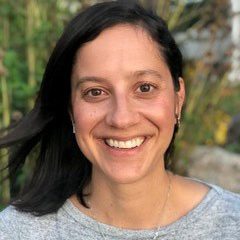Website
View WebsiteOffice Location
1675 Observatory Dr, 864A Animal Sciences

Post-Doctoral Fellow – Molecular and Cellular Physiology, University of Cincinnati (2008-2011)
PhD University of Arizona (2008)
Master’s of Science, New Mexico State University (2004)
Bachelor’s of Science, New Mexico State University (2002)
- A 5-HT-mediated urethral defense against urinary tract infections
- Characterizing serotonin expression throughout bovine mammary gland developmental stages and its relationship with 17β-estradiol at puberty
- Prenatal treatment with the antidepressant fluoxetine on maternal and neonatal behavior in sheep
- Monitoring mammary gland development in preweaning dairy heifers using ultrasound imaging
- Graduate Student Literature Review: Mammary gland development in dairy cattle-Quantifying growth and development
- Ultrasound-assisted minimally invasive technique for tissue collection from bovine mammary glands
- Hormonal profiles and biomarkers leading to parturition in cattle†
- Investigating the influence of perinatal fluoxetine exposure on murine gut microbial communities during pregnancy and lactation
- Exploring the contribution of mammary-derived serotonin on liver and pancreas metabolism during lactation
- Selective serotonin reuptake inhibitors during pregnancy and lactation: A scoping review of effects on the maternal and infant gut microbiome
- Intravenous infusion of 5-hydroxytryptophan to mid-lactation Holstein cows transiently affects milk production and circulating amino acid concentrations
- Fluoxetine treatment during the postpartal period may have short-term impacts on murine maternal skeletal physiology
- Identification of genetic variants and individual genes associated with postpartum hypocalcemia in Holstein cows
- The antidepressant fluoxetine (Prozac®) modulates serotonin signaling to alter maternal peripartum calcium homeostasis
- Developmental fluoxetine exposure affects adolescent and adult bone depending on the dose and period of exposure in mice
The overall goal of our laboratory is to understand how autocrine/paracrine factors in the mammary gland regulate mammary gland development, as well as milk synthesis and secretion. We utilize a combination of in vitro and in vivo models, with a variety of mammalian species (mice, cattle, humans) to understand how the mammary gland and the mother adapt to lactation. We also utilize a combination of molecular and whole animal physiological techniques to understand mammary gland physiology.
Our laboratory is focused on mammary gland biology and lactation. In particular our area of research is centered around how serotonin made in the mammary gland affects mammary gland development and lactation. In particular, one major area of focus for our laboratory is how serotonin regulates the mother’s ability to regulate calcium homeostasis at the onset of lactation. Calcium is critical to milk formation and is the most abundant mineral in milk, but is also an important mineral that governs many of the mother’s physiological processes. We are interested in the role serotonin plays in modulating calcium between the mother and the milk during lactation. Every mammal must mobilize a certain portion of their skeleton to maintain adequate circulating calcium levels in addition to supporting the formation of milk. We currently have two areas of research regarding this topic. One focuses on developing a novel method to prevent hypocalcemia in dairy cows, and the other focuses on how the use of selective serotonin reuptake inhibitors during pregnancy and lactation can exacerbate bone lose, resulting in decreased bone mineral density later in life. We are investigating the use of SSRIs during pregnancy and lactation on long-term maternal bone health, as well as fetal health. Our laboratory recently received funding from NICHD to investigate the underlying molecular mechanisms regulating communication between mammary gland and bone tissue during lactation and how serotonin regulate this mechanism.
ADSA Production Division Director
CALS Academic Planning Council
CALS Equity and Diversity Committee
CALS Climate Survey Advisory Committee
Section Editor – Physiology, Journal of Dairy Science
Chair – Animal and Dairy Sciences Climate and Diversity Committee
Chair-Sarah Adcock Mentor Committee
Chair – Sebastian Arriola Tenure Mentor Committee
Co-Director Women in Science and Engineering Learning Community
Graduate admissions committee for the interdisciplinary graduate program in nutritional sciences
Graduate curriculum committee for the endocrine and reproductive physiology program.
UW Committee on Faculty Rights and Responsibilities
CALS Arthur J. and Ellen A. Maurer Extra Mile Award (2024)
UW Mid-Career Vilas Associate Award (2022-2023)
CALS Pound Research Award (2021)
UW Vilas Faculty Fellowship (2018-2019)
ADSA Foundation Scholar Award in Production (2017)
Alfred Toepfer Faculty Fellow (2014)
U.S. Patent 8,133,916. Issued March 13, 2012. Control of Milk Production and Mammary Gland Involution.
U.S. Patent 9,585,870. Issued March 7, 2017. Compositions and methods for improving lactation.

